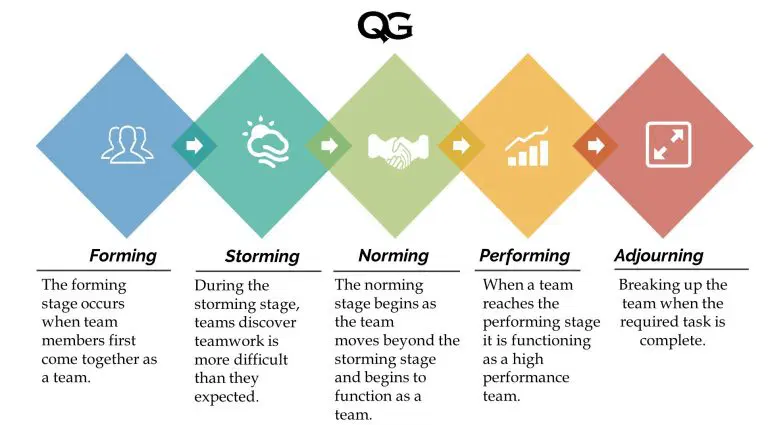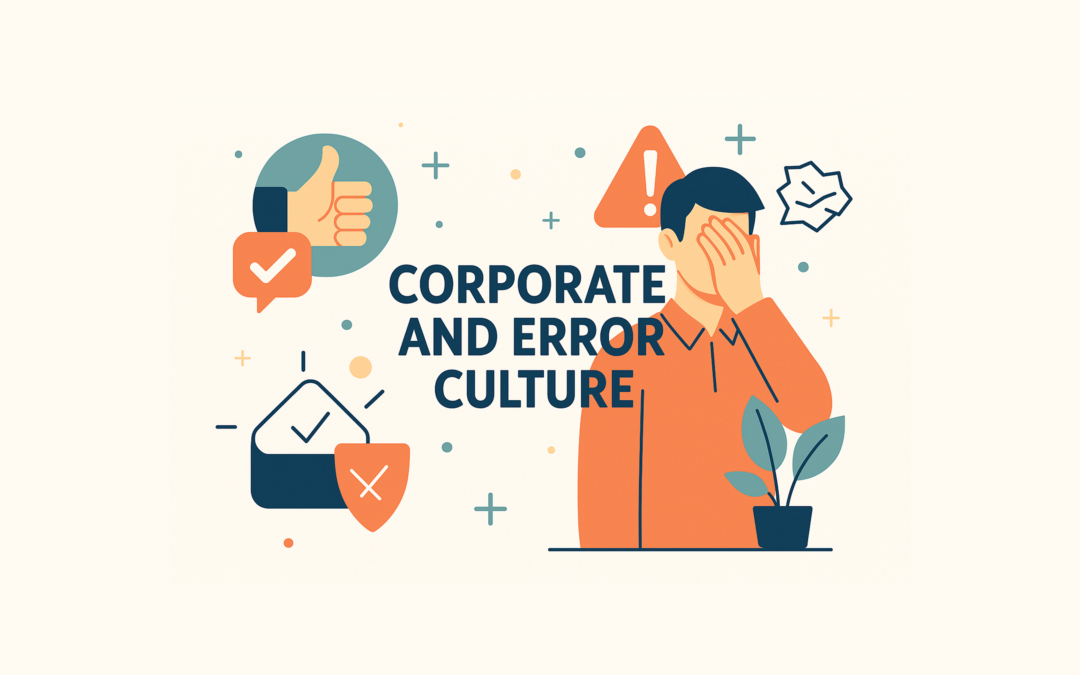Corporate and error culture with Jelena Klingenberg (hppypple)
The corporate culture in start-ups represents the heart of this dynamic form of company, which is characterised by innovation, flexibility and a unique team spirit. Startups are characterised by their ability to react quickly to change, implement new ideas and continuously develop.
But how do you build a corporate culture and get your employees excited about it? We get to the bottom of this question with two experts. Firstly with Jelena Klingenberg, founder of the HR start-up hppypple from Bingen, a full-service HR agency that takes care of its customers’ HR needs. This naturally includes building a corporate culture, the recruitment and application process and day-to-day issues in dealing with employees. We also spoke to systemic coach Gentiana Daumiller, who comes from Koblenz and is an expert in the field of error culture, among other things. We spoke to her about the challenges and issues surrounding the topic of ‘mistakes’. She gives us an insight into her day-to-day work and explains why and how mistakes help start-ups move forward.
Video 1: Introduction
hppyppl is an HR startup for smart and innovative HR management. Their portfolio ranges from HR services and consulting to new technological solutions. With their ‘HR as a virtual service’ concept, they enable even the smallest of companies to implement timely and people-centred people and culture management. The way they do consulting is also different, unusually integrative and yet efficient. They co-create with their co-companies (as they call their clients) without sacrificing efficiency.
Their vision is to make the world of work more human, because they are convinced that organisations in which people are happy to get involved are more successful. Ultimately, everyone has a right to a fulfilling job.
Video 2: Common mistakes and approach to human resources
Jelena gives an introduction to the topic of human resources in start-ups. The focus is on the following topics:
📍When do human resources and corporate culture become relevant?
📍Which areas of activity need to be covered?
📍The most common mistakes and observations
Video 3: Team constellation, values and skills
In this video, Jelena gives an insight into the following topics:
📍Team constellation
📍(Shared) values as the basis for successful collaboration
📍Deriving required skills from the ‘purpose’
Video 4: Corporate culture
In the ‘Corporate culture’ section, Jelena informs you about the following topics:
📍How do I build a corporate culture?
📍Defining values
📍Living values
📍Team phases according to Tuckman
Video 4.1.: How to build a team and teamretros
In this thematic excursus, Jelena gives a free and valuable tip for successful team leadership.
Video 5: How to build up a corporate culture
Why do you actually need a corporate culture? Jelena answers this question in this video. The following topics are also in focus:
📍What is corporate culture?
📍What are the benefits of corporate culture?
📍Example: Error culture
Video 6: Recruiting and employer branding
Many founders are faced with the challenge at some point: ‘How do you attract new employees to your startup?’. Jelena gives tips and explains how to attract the attention of applicants. The focus is on the following topics:
📍Recruiting
📍Employer branding
📍Recording hard and soft skills
📍Getting started with the recruiting process and initial tips
Video 6.1.: Team fit and toxic behaviour in the team
Video 6.2.: No-interruption-rule
Video 7: Ambidextry
In this video, Jelena explains what ambidexterity means in start-ups:
📍praiseworthy vs. blameworthy failures – an introduction to failure culture
📍fail often – fail early
📍Ambidexterity in startups
Video 7.1.: Analog vs. digital recruting
Team phases according to Tuckman
🔄 The Five Team Phases According to Tuckman
Developed in 1965 by psychologist Bruce Tuckman, this model describes how teams typically evolve. Originally it included four phases, with a fifth added later:
1. Forming (Orientation Phase)
– Team members get to know each other
– Roles, expectations, and goals are still unclear
– Polite interactions, minimal conflict
2. Storming (Conflict Phase)
– Tensions arise (e.g., due to different work styles or unclear goals)
– Roles are challenged
– Important: Address conflicts openly without escalation
3. Norming (Regulation Phase)
– The team agrees on rules and structures
– Trust builds, collaboration becomes smoother
– Roles and responsibilities are clarified
4. Performing (Performance Phase)
– The team works efficiently and independently
– Goal-oriented collaboration at a high level
– Creativity and productivity emerge
5. Adjourning (Closure Phase) (added later)
– Team is dissolved or restructured
– Reflection, farewell, and transition planning

🚀 Relevance for Startup Teams
📌Raising awareness: Founders benefit from knowing these phases – it helps them understand and actively guide team dynamics.
📌Normalizing conflict: The storming phase is natural – when handled consciously, it strengthens the team in the long run.
📌Team leadership: Founders can actively support the process through clear communication, feedback culture, and role clarity.
📌Resilience building: Teams that grow through these phases often develop strong foundations for future challenges (e.g., rapid scaling or investor interactions).
📌Exit or scaling situations: The adjourning phase may occur during team transitions or exits – effective management here protects know-how and team culture.
High-Tech-Gründefond #Foundersclass
What is the High-Tech Gründerfonds (HTGF)?
High-Tech Gründerfonds (HTGF) is Germany’s leading seed investor for early-stage tech and high-tech startups. It offers initial funding of up to €1 million, with potential follow-on investments of up to €3 million.
More than just capital, HTGF provides access to an extensive network of industry partners, experienced co-investors, and startup-savvy experts. Founders benefit from hands-on support, strategic guidance, and real connections to scale their ideas.
HTGF focuses on digital tech, industrial tech, life sciences, and new materials – making it a strong partner for ambitious, science-driven startups ready to make an impact.
What is the High-Tech Gründerfonds #Foundersclass?
The #Foundersclass of High-Tech Gründerfonds (HTGF) is an initiative aimed at connecting founders and encouraging exchange within the startup community. Through regular events and formats, the #Foundersclass offers a platform for founders to share their experiences, learn from each other, and grow together.
This network helps overcome challenges and paves the way to success. Some of these events were recorded on video – we’re sharing them here with you. These videos are produced and published by HTGF on YouTube. We’re simply linking to them here.
FAQ - Frequently asked questions
When does it make sense to start thinking about HR and corporate culture in a startup?
Many founders wonder whether HR only becomes relevant once a company reaches a certain size. In fact, it is worth establishing clear rules and values from the moment you hire your first team member. Otherwise, unspoken expectations or unclear roles can creep in, which are difficult to correct later on.
What areas of activity should HR cover in the early stages?
People often think of HR as just recruiting. But in startups, there is more to it than that: contract drafting, onboarding, feedback processes, training, and promoting a healthy team culture. It is enough to approach these issues pragmatically at first – the main thing is that they are not left to chance.
What typical mistakes do startups make when building HR and culture?
Often, HR is established too late, there is a lack of transparency in decision-making processes, or conflicts are ignored. The issue of “team fit” is also often underestimated—if values don’t match, tensions can quickly arise.
Why are shared values so important for collaboration?
Values are the foundation on which decisions, collaboration, and communication are based. When a team shares the same basic principles, conflicts can be resolved more quickly and goals can be pursued more clearly. Without value alignment, even small differences of opinion can escalate.
How can values and purpose be practically incorporated into the team?
It is not enough to write down values – they must be visible in everyday life. This can be achieved through rituals (e.g., regular retrospectives), leadership by example, and clear rules for working together. Purpose helps to derive priorities: What skills do we really need to achieve our purpose?
How do I actively build a corporate culture?
Culture does not just happen – it can be shaped. Start with a discussion in the team: What values do we want to live by? What behaviors fit with these values? Use Tuckman’s team phases (forming, storming, norming, performing) to understand what stage of development you are currently in.
What are the benefits of a consciously designed corporate culture?
A strong culture increases motivation, loyalty, and productivity. It helps with recruiting (attractive employer brand), facilitates decision-making, and provides orientation in uncertain phases. Example: error culture. When mistakes can be discussed openly, teams learn faster and innovate more.
How can I ensure that applicants really fit into the team when recruiting?
In addition to hard skills, you should check soft skills and values. Questions about motivation, cooperation, or dealing with conflicts are helpful. Also watch out for warning signs of toxic behavior. Methods such as the “no interruption rule” in interviews show whether applicants bring respect and team spirit to the table.
What is employer branding—and why is it important for startups?
Employer branding refers to how your startup is perceived as an employer. Small teams in particular benefit from clearly positioning themselves: What values, culture, and working environment do we offer? Positive employer branding attracts suitable talent and reduces turnover.
What is the difference between “praiseworthy” and “blameworthy” failures?
“Praiseworthy failures” are mistakes that arise from courageous experimentation and yield valuable insights. “Blameworthy failures” are avoidable mistakes that arise from negligence, lack of communication, or ignoring rules. A good error culture praises the former and minimizes the latter.
What does “fail fast, fail early” mean for my team?
The idea is to test assumptions quickly instead of spending a long time planning in secret. Small, early failures are less costly and provide faster feedback. This reduces the risk of large, expensive mistakes.
How can recruiting be supported digitally without losing the human aspect?
Digital tools (e.g., applicant management systems, online interviews) facilitate the process, but should not replace face-to-face interviews. Cultural and value issues in particular are better recognized in direct exchanges. Analog and digital elements can be combined: first online pre-selection, then a personal team interview.
Glossary
Glossary – Module “Corporate & Error Culture”
Values & Corporate Values
Short definition: Fundamental principles and beliefs that guide a company’s actions.
Benefit: Provide orientation, shape decisions, and foster identification.
Example: Sustainability as a core corporate value.
Corporate Culture
Short definition: The sum of values, norms, and behaviors that define collaboration within a company.
Benefit: Influences motivation, teamwork, and external perception.
Example: Open doors and flat hierarchies foster exchange.
Error Culture
Short definition: A company’s attitude toward handling mistakes.
Benefit: Encourages learning, innovation, and psychological safety.
Example: “Fail fast, learn faster” mentality.
Feedback Culture
Short definition: Structures and practices for giving and receiving feedback within a company.
Benefit: Strengthens collaboration and personal development.
Example: Regular team feedback sessions.
Human Resources (HR)
Short definition: Department responsible for recruitment, development, and administration of personnel.
Benefit: Ensures employees are optimally placed and supported.
Example: Introduction of a mentoring program.
Team Composition
Short definition: The makeup of a team in terms of skills, roles, and personalities.
Benefit: Determines performance and innovation capacity.
Example: Interdisciplinary team of engineers and designers.
Purpose
Short definition: The meaning and reason for a company’s existence beyond profit.
Benefit: Motivates employees and strengthens brand identity.
Example: “Making healthy food accessible to everyone.”
Tuckman’s Team Phases
Short definition: Model describing team development: Forming, Storming, Norming, Performing, Adjourning.
Benefit: Helps leaders better understand team dynamics.
Example: Conflicts in the storming phase are normal and lead to stability.
Recruiting
Short definition: Activities to attract new employees.
Benefit: Secures talent and supports growth.
Example: Active sourcing via LinkedIn.
Employer Branding
Short definition: Building and maintaining an attractive employer brand.
Benefit: Increases visibility and appeal among applicants.
Example: Company presence at career fairs.
Team Fit
Short definition: The alignment of a person with an existing team regarding culture, values, and work style.
Benefit: Promotes harmony and performance.
Example: A new employee shares values and complements skills.
Toxic Behavior
Short definition: Actions or attitudes that harm team climate and collaboration in the long run.
Benefit: Early detection prevents conflicts and turnover.
Example: Constant blame-shifting without taking responsibility.
No-Interruption Rule
Short definition: Rule that people must not be interrupted while speaking. The one who interrupts gets interrupted too.
Benefit: Fosters respect, inclusion, and active listening.
Example: Team meetings with clearly defined speaking times.

Hi, i'm Lukas
and I manage the e-learning program. Do you have any further questions? Feel free to contact me via email: theisen@gruendungsbuero.info

